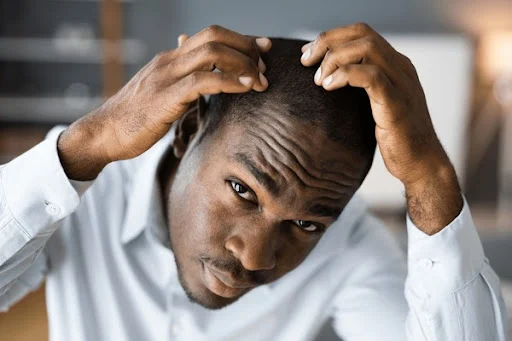Understanding Hair Fall: Causes, Treatments, and Prevention
Introduction
Hair fall, medically known as alopecia, is a common concern affecting millions of people worldwide. While it’s normal to lose 50 to 100 hairs per day, excessive hair fall can be distressing and may indicate underlying health or lifestyle issues. This article explores the causes of hair fall, available treatments, and effective prevention strategies.
---
Common Causes of Hair Fall
1. Genetics (Androgenetic Alopecia)
Hereditary hair loss is the most common cause of hair thinning in both men and women. It typically manifests as a receding hairline or thinning crown in men, and diffuse thinning across the scalp in women.
2. Hormonal Changes
Conditions such as pregnancy, childbirth, menopause, and thyroid disorders can trigger temporary or permanent hair fall.
3. Medical Conditions and Medications
Autoimmune diseases (like alopecia areata), scalp infections, chemotherapy, and certain medications (e.g., blood thinners, antidepressants) can lead to significant hair loss.
4. Nutritional Deficiencies
Inadequate intake of iron, protein, biotin, zinc, and vitamins D and B12 can impair hair growth and strength.
5. Stress and Lifestyle Factors
Physical or emotional stress, poor sleep, smoking, and a sedentary lifestyle can disrupt the hair growth cycle.
6. Hair Treatments and Styling
Frequent use of heat styling tools, harsh chemicals, tight hairstyles, and over-processing can damage hair shafts and lead to breakage and fall.
Effective Treatments for Hair Fall
1. Topical Treatments
Minoxidil: FDA-approved for both men and women, it helps stimulate hair growth and slow hair loss.
Corticosteroids: Used for inflammatory scalp conditions like alopecia areata.
2.Oral Medications
Finasteride: Commonly prescribed for male-pattern baldness, it reduces hormone levels that shrink hair follicles.
Supplements: Iron, zinc, biotin, and vitamin D supplements can help if deficiencies are identified.
3. Medical Procedures
Platelet-Rich Plasma (PRP): Injections of concentrated platelets can stimulate follicle activity.
Hair Transplant Surgery: Follicles are moved from dense to thinning areas for permanent results.
4. Laser Therapy
Low-level laser devices may promote hair regrowth by improving blood flow to the scalp.
Prevention and Lifestyle Tips
• Maintain a Balanced Diet: Ensure adequate protein and essential nutrients.
• Practice Gentle Hair Care: Use mild shampoos, avoid excessive heat, and refrain from tight hairstyles.
• Reduce Stress: Engage in relaxation techniques such as yoga, meditation, or regular exercise.
• Avoid Smoking and Limit Alcohol: These can impair circulation and affect hair follicle health.
• Regular Scalp Care: Keep your scalp clean and treat dandruff or infections promptly.
When to See a Doctor
Consult a dermatologist if:
• You notice sudden or patchy hair loss.
• Your hair falls out in clumps.
• Over-the-counter treatments are ineffective.
• You suspect an underlying health issue.
Conclusion
Hair fall can be a result of various factors ranging from genetics to lifestyle. Understanding the root cause is key to finding the most effective treatment. With the right approach—be it medical treatment, improved nutrition, or lifestyle adjustments—hair fall can often be managed or even reversed. Early intervention is crucial, so don't hesitate to seek professional advice if hair loss becomes persistent or severe.

Comments
Post a Comment